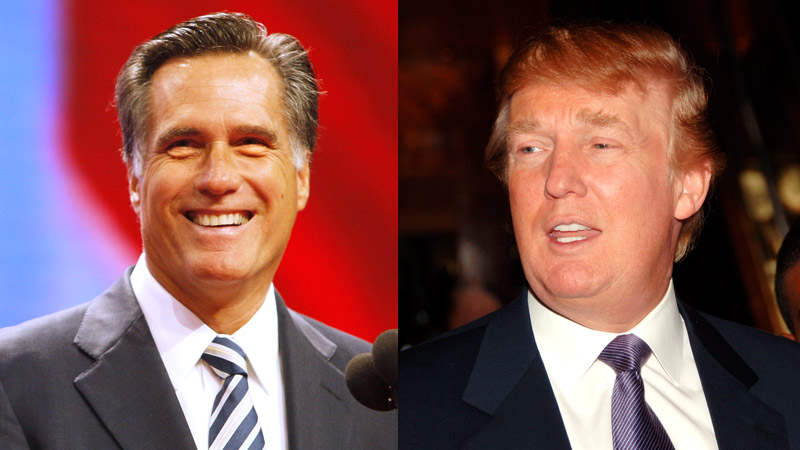
Mitt Romney, the Republican party’s most recent presidential nominee, lambasted GOP front-runner Donald Trump Wednesday, calling him a fraud and a bully. He warned that a Trump nomination could ensure Democratic candidate Hillary Clinton a win in the race for the White House.
Trump responded hours later calling Romney a “lightweight” and a “failed candidate.” And the party’s top candidates continued their heated war of words and personal attacks throughout the day. Yet, Trump’s three remaining rivals closed Thursday’s debate pledging to support Trump if he is the party’s nominee.
Cal State Fullerton political science and human communication experts responded to the Republican party woes with these comments.
Jon Bruschke, professor of human communication studies:
 “From a logical perspective, Romney is right. He correctly predicted a crude response and it did come to pass. It does speak to the temperament of someone seeking the highest office.
“From a logical perspective, Romney is right. He correctly predicted a crude response and it did come to pass. It does speak to the temperament of someone seeking the highest office.
From a political perspective, it does not appear to be something that will change the fundamental dynamics of the nomination. So long as there is not an establishment candidate to unify behind, Trump’s nomination seems secure. Beyond that, Trump is not winning a majority within his own party and his crass, bullying comments do not appear to matter to his supporters. We can only hope in a broader election more voters will expect the chief executive to behave in a more civil manner.”
Stephen Stambough, professor of political science:
 “During the Reagan era, the Republican coalition was referred to as a three-legged stool with business conservatives, military conservatives, and social conservatives forming a coalition even if there were issues of disagreement. The Trump coalition appears to be an expanded version of the Tea Party movement that included anger and fear about the Obama Administration policies. That anger and fear has been galvanized by Trump toward the GOP establishment that never repealed Obamacare and lost the 2012 Presidential election. What we are seeing is a loosely conservative, populist movement that is targeting both the Democrats and the Republicans they view as ineffective and weak.”
“During the Reagan era, the Republican coalition was referred to as a three-legged stool with business conservatives, military conservatives, and social conservatives forming a coalition even if there were issues of disagreement. The Trump coalition appears to be an expanded version of the Tea Party movement that included anger and fear about the Obama Administration policies. That anger and fear has been galvanized by Trump toward the GOP establishment that never repealed Obamacare and lost the 2012 Presidential election. What we are seeing is a loosely conservative, populist movement that is targeting both the Democrats and the Republicans they view as ineffective and weak.”
Matthew Jarvis, associate professor of political science:
 “As Republican party elites either side against (Romney, McCain) or for (Corker, Christie) Trump, there are two lenses we might look at this through.
“As Republican party elites either side against (Romney, McCain) or for (Corker, Christie) Trump, there are two lenses we might look at this through.
First, in the short term, Trump seems likely to splinter the party come November. While a third-party effort may or may not get off the ground, the sentiments behind it (such as the #NeverTrump campaign) threaten to fracture the party’s electorate in the fall. Even if there isn’t a third-party campaign, a Trump-Clinton campaign might just cause a significant number of Republicans to simply stay home on election day.
Second, in the long term, what happens to the Republican Party is an open question. The Trump campaign has revealed a deep schism in the party, notably between a significant chunk of its base and its elites. In 2017, supposing a Trump victory, will those anti-Trump forces accept defeat and work for Trump’s goals, or will they leave the party? If Trump loses, what happens to the third of the party that seems to like what he has been selling?
Questions like these seem to be what would have been asked during previous realignments of our party system, but is this different? Are we watching a party realignment unfold in front of our eyes? Or something else, something new that we haven’t seen before in American politics?”